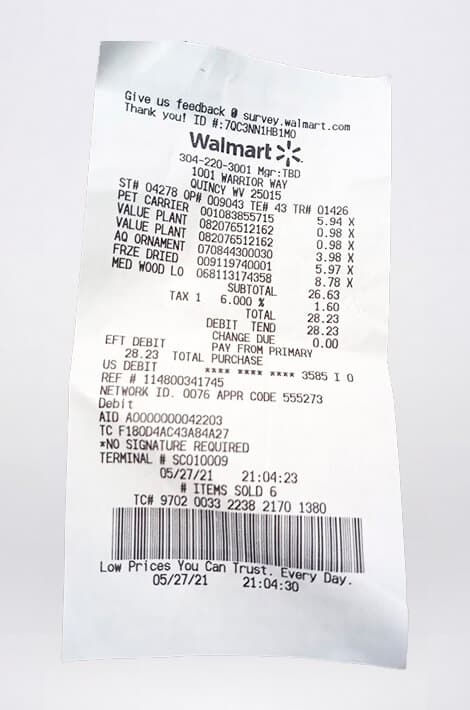Last Updated on January 9, 2025
2018 saw a momentous shift away from accepted accountancy practices, with many firms focusing their processes around automation and technology. You only need to look at the number of firms embracing cloud and OCR receipt scanner technology to see this.
Far from being a passing fad, it appears as though large-scale commercial integration of technology looks set to become a mainstay within the accounting sector for years to come. This isn’t apparent in the GCC region, but globally. Why? Accountants and finance professionals across a range of sectors are determined to employ technology available at their disposal to unlock valuable resources – primarily time and money.
What does this seismic shift in opinions and workflow processes mean? Well, according to 2026, the global accounting software market is predicted to be worth $11.8 billion. Businesses and people are increasingly turning to trusted online accountancy tools, including apps that feature intuitive receipt scanning API, to manage commercial activities. Need proof? In 2018 alone, QuickBooks Online grew their subscriber bases by 41%.
With significant changes afoot, what trends are likely to affect the accountancy sector in 2019? Here’s a list of four trends to keep an eye on as 2019 unfolds.
Changing Workplace Expectations
According to a global study, conducted by Sage, 83% of clients are expecting more from their accountants than a mere five years ago. The days of painstakingly inputting figures on a spreadsheet are long gone. An increasing number of accountants are taking on a more consultative role – moving into client-facing positions.
A key 2018 trend saw technology playing a vital role in helping accountants attract and retain top tier talent. Appealing to millennials, a generation whose lives have evolved as technology has evolved is viewed as paramount to securing continued prosperity as the accountancy sector has evolved. This demographic of people are the innovators – and drive businesses forward.
Building on the next generation ethos, a recent Mckinsey discussion paper discovered that the demand for employees with sound social and emotional skills, including communication and leadership, will increase by around 24% in 2019. This reflects the expected progress towards the consultative role that accountants will be expected to fulfill.
Value and the Age of Automation
2018 saw the role of a bookkeeper evolve. With automation becoming increasingly sophisticated (receipt scanning API being one such example), accountants have been able to provide an increasingly affordable service to clients.
However, in an age of expansive digital prowess, how can accountants and bookkeepers attract and retain their clients? Well, there many advantages to automating financial accounts, but that all-important personal touch is not one of them.
From a commercial perspective, value is at its most potent when businesses offer something that the competition cannot. AI bookkeeping start-up, Botkeeper made headlines in 2018 in being awarded the largest A-round of investment for a Boston tech company – $18 million.
Botkeeper has pledged to provide businesses with a 24/7 AI-drive bot keeper, working alongside a human bookkeeper who can assist when required – and that the business is backed by Google – has attracted much interest.
What’s apparent is that Botkeeper illustrates the role of human accountants, even in ever-expanding accountancy automation. In short, technology can deliver the figures, but human interaction, collaboration, and guidance are still intrinsic within the sector.
Banking Data and Its Potential
In 2018, the EU introduced ‘Open Banking’, a directive aimed at encouraging banks to share their data securely with authorized institutions. This directive has gained global traction, with QuickBooks Online, Xero, MYOB and Sage subsequently introducing new banking features.
For example, Xero released a fully featured bank API which provides banks and Fin Techs the ability to securely and efficiently transfer information to and from Xero. QuickBooks has launched an auto-import functionality whereby bank statements can be imported into bank feeds and screened automatically.
These sync with the rise of digital-first banks. With an increasing number of digital institutions, such as Tide and Starling Bank become more and more prominent, it seems, if not inevitable then highly likely that open banking will evolve to become a dominant feature on the commercial banking landscape.
Accountants and bookkeepers are ideally placed to spot opportunities for businesses to employ open banking and similar online tools of much prowess – such as an OCR receipt scanner – to revolutionize their business practices.
Cash Flow Consulting
Small businesses drive the global economy. According to the US Small Business Administration, more than 50% of American’s own or work in a small business. Small businesses are highly reliant on the amount of cash they have available.
Without creating and maintaining an accurate cash flow forecast – due partly to software and apps with intuitive receipt scanning API – businesses cannot plan for long-term growth, invest in the future, or employ top tier talent who can drive the business forward.
Implementing cash flow management solutions are integral to sustained success and business growth. Cash flow consulting looks set to be one accounting trend that’s likely to be prominent in 2019. Why? New – and existing – technology means that it’s never been easier for accountants to offer cash flow solutions to clients. Simply automating the manual data entry of expenses, employing an OCR receipt scanner, for example, allows businesses to have a consistently accurate overview of this cash flow.
These are four accounting trends to watch out for in 2019. How many are you aware of? What changes could you make this year to hone workflow processes, free up time – and potentially increase business revenue? One other change we have made is to start using contract management software which has cut down time dealing with wasteful paper contracts. It was such a hassle before to get people to print, sign then scan a long contract so this helps us, clients and reduces our carbon footprint





